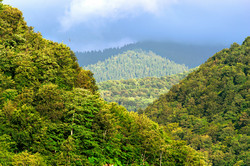New tools to advance forest management in Europe
Forest management is an integral part of combatting climate change in Europe, which is home to numerous complex forests across its mountainous regions. The EU-funded ARANGE (Advanced multifunctional forest management in European mountain ranges) project assessed the need for ecosystem services and forest management in Europe’s mountain forest regions. The project studied the pros and cons of different approaches to mountain forest management, mapping related risks and threats, in order to advance ecosystem services. It investigated cutting-edge knowledge for providing these services to support policymakers and forest experts so that they can enhance decision-making and planning. The project covered seven mountain regions in the continent, integrating different forest types such as continental, Mediterranean and boreal. It worked on identifying the different ecosystem services from conservation to protection, analysing policy and governance frameworks, and outlining management strategies. To achieve its aims, the project team collected the relevant tree data and baseline climate data for different elevations. It also projected five transient climate change scenarios for each of the seven areas under study, in addition to modelling forest conditions and defining ecosystem service indicators. Specifically, the team identified 22 indicators for different ecosystem services, namely timber and biomass production, carbon sequestration, biodiversity/habitat conservation, protection against landslides, and avalanches or falling rocks. Most importantly, the project developed a decision support toolbox to analyse ecosystem services indicators for different landscapes and made it publicly available to facilitate forest management planning. Among its findings, the project team demonstrated the importance of factoring disturbances to avoid over-optimistic forest projections. It also recommended against a single forest management approach for all European mountain forests. These and many other conclusions, along with the toolbox, will contribute to safeguarding our forests and pre-empting catastrophic changes that could arise from climate change.







